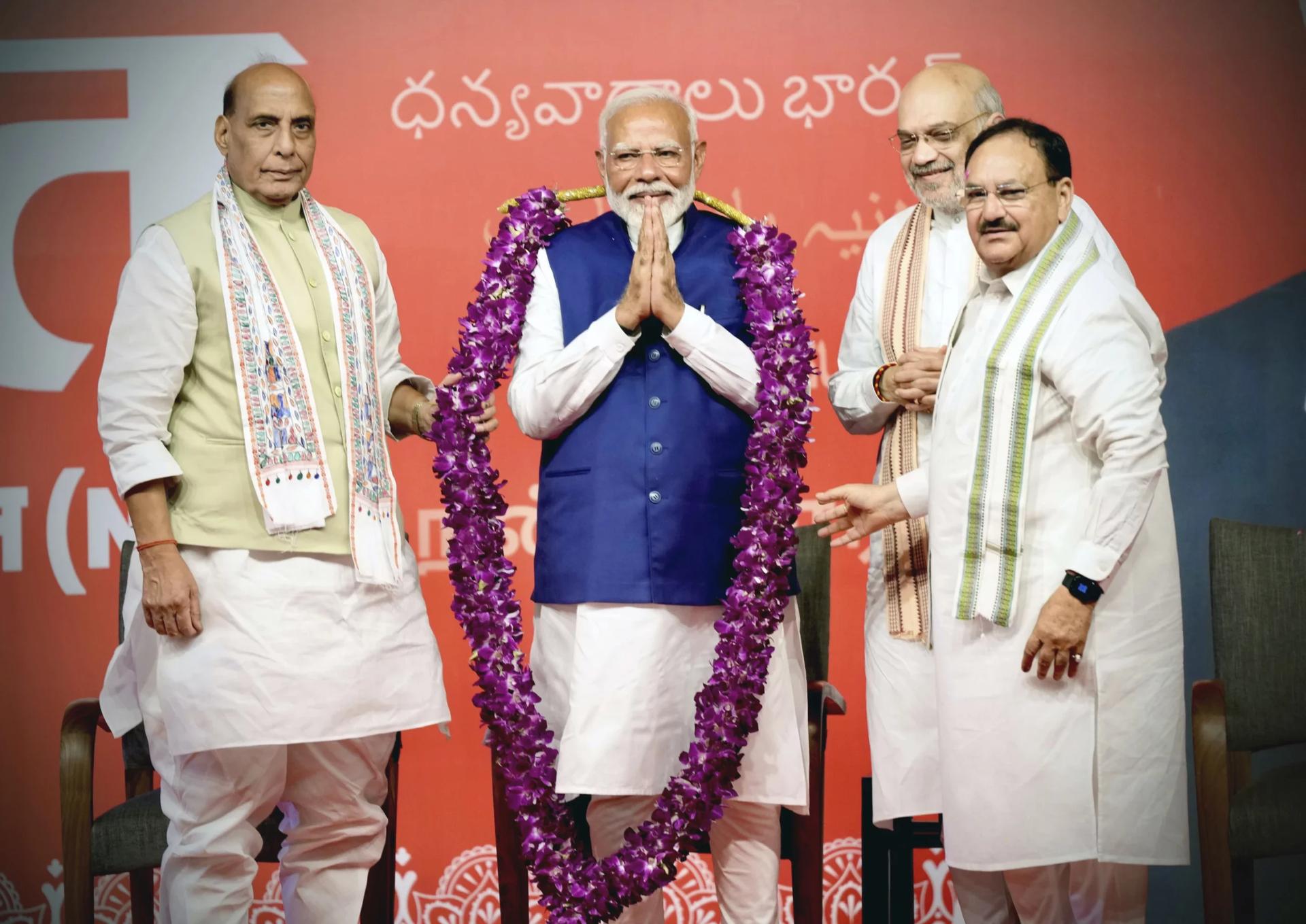MUMBAI, India – India’s leading Catholic cardinal says the country’s election results shows it has a “healthy opposition,” after the ruling Bharatiya Janata Party (BJP) fell below an absolute majority in parliament.
Prime Minister Narendra Modi will still be prime minister – his third consecutive term – but the BJP will not get the 272 seats required in parliament for a majority, and he will depend on the support of coalition partners.
“I am happy that democracy is thriving in India. It shows that the country is vibrant, and people are politically conscious and are voting rightly,” Cardinal Oswald Gracias told Crux.
More than 640 million people voted in the elections, which take place over seven weeks in a country with a population of 1.4 billion people.
The Congress Party-led INDIA opposition alliance led by Rahul Gandhi did surprisingly well, after pre-election polls predicted it would decline this year.
“Whatever government comes to power, the Church will certainly cooperate,” Gracias said.
“What is joyful is that the whole process has gone on so peacefully and orderly. It shows that there will also be a healthy opposition. I think this is good for the country, good for democracy and good for the future,” the cardinal said.
“Our people are becoming politically conscious and aware of the needs of the people and the needs of the country. To ensure a good and clean government. I am happy that the voter turnout was rather good – though it could have been better – and that the people have taken the elections seriously,” Gracias added.
India is a highly religious country, and nearly 80 percent of the population is Hindu. Muslims make up nearly 15 percent, with Christians holding just 2.3 percent of the people.
Since 2014, India has been ruled by the BJP, which has strong links to the Rashtriya Swayamsevak Sangh (RSS), a militant Hindu nationalist organization. Religious minorities have complained of increased harassment since the party took power on a Hindu-first platform.
Incidents of harassment against Christians and other religious minorities have increased across India, with various Christians being detained or arrested for “attempted conversion,” and places of worship being vandalized.
There were fears that Modi would have a sweeping majority in the 2024 elections, and consolidate Hindu nationalist policies in India, which was founded with a secular government.
“This election result is an eloquent testimony to the fact that the Indian electorate has opted for a stronger opposition that would strengthen the democratic process and institutions,” said Father Babu Joseph, the former spokesman for the Catholic Bishops’ Conference of India.
He acknowledged it is “almost clear” the BJP coalition will win the election but told Crux that Indian democracy “has been vibrant and that is demonstrated time and again when regimes led by however powerful leaders were shown the door through the ballots.”
“The was a strong perception amongst a sizeable section of society that India under the previous regime was inching towards autocracy and majoritarian rule which has been put into the backburner now,” Babu said.
The priest told Crux that in this year’s elections, “when the ruling tried to galvanize the electorate by whipping religious sentiments and communal passion, the public did not sway to their tunes rather they chose a path of social cohesion and religious harmony.”
There are fears that the BJP will face problems in a coalition after having a full majority in the last two elections. India governments have historically been somewhat chaotic under coalitions, with wheeling-and-dealing policies used to placate members.
However, Catholic leaders say it is important for the elections to be free and fair, whatever the results.
“I am happy that what the people want will happen. The voice of the people is important. Our system is good, and we have faith in our system. It was a well fought election and although over a long period, in the end it was worth it,” Gracias told Crux.
“The Church will continue its ministry of being of service to the country and to serve the country and people of all religions. This has been the policy of the Church and will continue to be so. We will continue to be in the mainstream of service,” the cardinal said.















